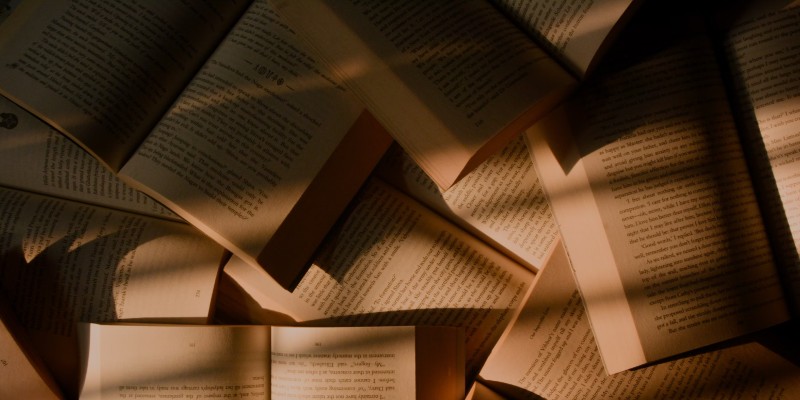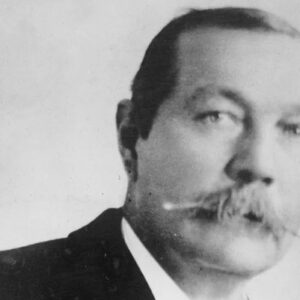Josh Kendall is the executive editor of Mulholland Books. Josh works with some of my current favorite writers: Jordan Harper, Gabino Iglesias, Walter Mosley, Michael Koryta, Joe Landsdale, Michael Farris Smith, and many, many more.
With Shop Talk lumbering along into its third year, I decided it might be nice to mix things up. Considering the aforementioned laundry list of all-star authors, Josh seemed like a good place to start.
The main goal of this column has always been to delve deeper into the work. That’s what interests me most, how people in this industry make books. How they’re written. How they’re revised. And now, for the first-time in Shop Talk history—how they’re edited.
Josh and I cover everything from Tim Burton’s Batman to why so few male crime writers have kids. I hope you enjoy it, but most of all, I hope you learn something along the way. I sure did.
Eli Cranor: What’s a day in the life of an editor look like?
Josh Kendall: One of the important things that distinguishes an editor from an author is that a day is not my own. A big part of any author’s success is that they do everything they can to make sure that their day is their own, even if it’s impossible. You’ve got a day job, a partner, kids…
EC: Kids, yeah. That’s a big one.
JK: I’m relieved to know you have kids. I’m always a little surprised by how many male crime writers don’t have kids. I mean, I don’t blame them. I love my kid, but . . . Anyway, my day begins with a four-year-old running into our bedroom saying it’s time to wake up. If I’m lucky, it’s around seven. Mornings are my time with my son. I’m the breakfast guy. Get the kid dressed and to school guy. After all of that, I get to work. I now only go into the office twice a week. I’m not doing any editing in the office. It’s impossible.
EC: Has working in the office always been such a problem?
JK: Nine or ten years ago, back when I was first starting at Mulholland, I found all these crazy ways to get editing done. I had the New York Public Library nearby. I edited Underground Airlines there. There were two hotels where I could literally just post up in the lobby and they’d think I was a guest. I’ll edit in a coffee shop with those big noise-cancelling headphones on.
EC: Is there such a thing as editing music?
JK: Of course. It seems to change by the year. Not by the book, necessarily. This year it’s been mostly Afrobeat. There’s something about the polyrhythms of modern African music that do something for me. The soundtrack for The Assassination of Jesse James is one I’ve never let go of. I also love modern jazz. Jason Moran. Makaya McCraven. Shabaka Hutchings. If you want to blow your mind, check out Sons of Kemet. One last guy I would say is this Icelandic composer named Johan Jóhannsson. He did the soundtrack for Arrival and Sicario. He was one of my go-to guys for a while, but he passed away a few years back.
EC: I’ve said this in other interviews, but I’ve listened to “Kind of Blue” by Miles Davis for my entire writing career. Seven straight years of the same album.
JK: You don’t feel trapped by that?
EC: I don’t even hear it, man. But yeah, I mean, if anything ever gets clogged up down the line, that might be the first thing to go. Anyway, tell me about your mental state when before you sit down to a new manuscript?
JK: I’m never not experiencing a work as an editor. I just recently read the new Cormac McCarthy books. Even while I’m reading those books, I’m still editing. I also just watched the show “Poker Face.” The whole time, I’m critiquing it. I have an older child who’s in college. It would drive them crazy. We would come out of a movie, and they’d say, “Can’t you just love something!” And I’m like, “This is me loving something.” Back when I was in seventh grade, a friend and I skipped school to go see Tim Burton’s Batman. So we watch the movie, come out, get back on our skateboards, and it takes us at least an hour to get back home. The whole time, I never stop talking about the movie. I was thirteen. When we finally get back, my buddy turns to me and says, “Dude. You’re fucking weird.” Which is just to say, I’ve always been this way. It never turns off.
EC: And that’s how you approach each manuscript?
JK: Yeah, I’m already thinking about what sort of big points I want to make with the author. That doesn’t mean I don’t get stuck. Editors still have moments of panic where we don’t know what to do. I’m lucky to have colleagues I can talk to. That first read, I’m taking some notes in a notebook on the side. Anywhere between ten to thirty observations. I usually finish this in just a few days. Then I’ll spend a couple weeks really going in deep. I have these plain manilla folders I keep notes on. I do everything by hand. I’ll take a hundred or so pages wherever I go. The notes I’m taking, I take on the folder. They get really elaborate. I’ll write down various ideas and quotes. I’m creating a map for the book it’s going to be. But the folder, if you looked at it, looks incoherent. It’s like that moment in a movie when they go in the basement and there’s a wall with a string tying all these photos together.
EC: How do you make sense of all those scribbles?
JK: That’s the best part. I use the folder to write my letter. Everything I need is on that folder.
EC: I’m always interested in tools of the trade. The fact that you still edit on hard copies and have these old-school folders—that’s amazing. Why do you edit like this?
JK: Track changes don’t work for me. I can’t think about the book properly. In the same way, I can’t read and think on a screen. Part of it is just a level of comfort. It requires a level of deep programing. I’ve read so many physical books over my forty-seven years. I’ve always had real pages in front of me. That’s been part of my dream process.
EC: I love the image of you on a subway with a printed manuscript in your lap. Do you mail the manuscripts and the folder to your authors when you’re done?
JK: Not the folder. The manuscript just depends on the author. Some of them want it physical. Some don’t. When the author wants it in track changes, then my wonderful, poor assistant has to go in and key everything in.
EC: Damn.
JK: Yeah. I try to buy her fancy coffee on those days. It’s so tedious. For her, though, I hope it’s like looking behind the curtain. She gets to see what I’m thinking.
EC: Speaking of coffee, do you have any special affinities that help get you in the zone?
JK: I love Ethiopian coffee. It’s dark. It’s sticky, buttery. I do my coffee black, one sugar. I want it strong. Even when I find a good place, I keep searching. I’m an aesthetically restless person. We have a Starbucks on the ground level of our building, but I would never go there.
EC: Any other things you use to get in that headspace? Any strange talismans on the desk?
JK: I do like looking at the spines of books while I’m editing. At my home-office, we’re in a two-bedroom apartment in Brooklyn. I have my desk in the bedroom, which is tiny. I also edit at the dining room table. So, no, no traveling talismans. I am, however, a little bit of a pen fetishist.
EC: What’s your go to?
JK: Uniball. I’m good with three or four different kinds of Uniball. Muji makes a good gel pen. You can’t go wrong with a Japanese pen.
EC: I always end Shop Talks by asking authors why they write. I want to ask you the same thing, but first I want to ask why you chose editing over authoring, or was writing ever in the picture for you?
JK: Yeah, writing was a thing, but I grew up in Tacoma, Washington. Very few people left. I made it out, got to New York. All these people were going off to MFA programs, but to be honest, I didn’t trust it. I’ve always had these sort of middle-class values that made me feel like I needed to be working a 9-5 job. Part of it was fueled by fear. I wanted health insurance. I had a family. I felt like I had to provide. And because of all that, writing just seemed too risky. Originally, I thought I was going to be a music writer like Lester Bangs. I worked at a music magazine in college. I was deep into rap music. Then I started doing internships with publishing houses. I finally got to work with Nan Graham, the editor-in-chief of Scribner. That experience just blew my head off. She was editing Don DeLillo’s Underworld at the time. She had the physical pages— Wait. Maybe this is where the folders come from? Anyway, she’d finish a hundred pages and say, “Read behind me.” I was getting to read Underworld in manuscript form. These were manually typed pages, by the way. And that was it. I knew that was the job I wanted to do forever. I still told myself I could write, though. I told myself I needed to be surrounded by all these writers to become a writer.
EC: Do you regret not writing?
JK: I think most—not all—but most people in publishing wish they were writers. The flip side of that is that most editors see how hard it is to be a writer and it gives them some pause. I mean, we’re empaths. We’re the ones working with you and we see what a struggle it is. How isolating it can be. Once you’re already working in the business, getting to be with all these people doing all these wonderful things, the thought of being alone can be scary.
EC: And now for the bigger why. Why do you do it? What sort of difference are you trying to make by being an editor?
JK: There’s more than one answer to that question. First, I’m sort of a voraciously curious and restless person. The editor job is well-suited for people who can’t stop thinking about books and music and film and politics. The editors’ life allows me to pour all of that into one thing. That’s one answer. Another answer is that I see crime fiction as a source of good. Crime fiction can speak to realities in a unique and exciting way. The last answer involves another childhood story. My mother was a social worker. Her specialty was helping children and the parents of children who had suffered horrendous, often criminal abuse. She had an office in the basement of our house. Her patients were always around. I couldn’t stop thinking about them. Maybe my curiosity in crime fiction came from that, this deeper question of who are those people and what are their stories . . .

















